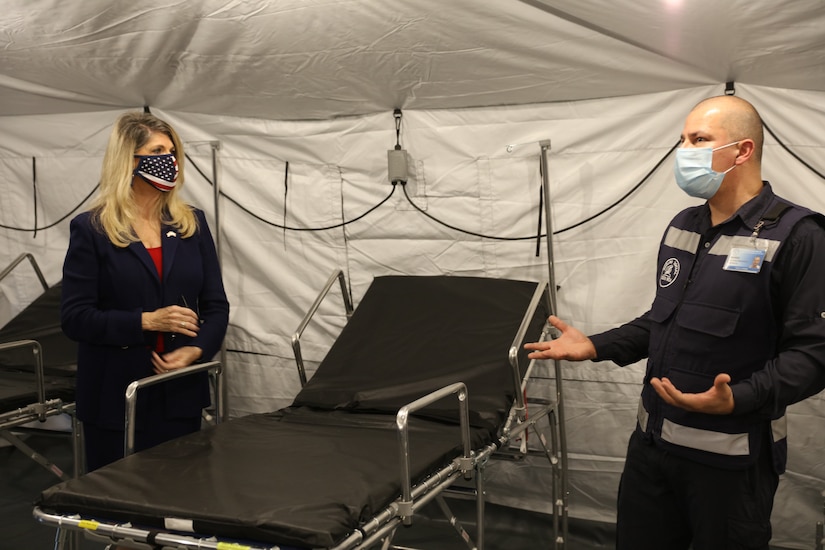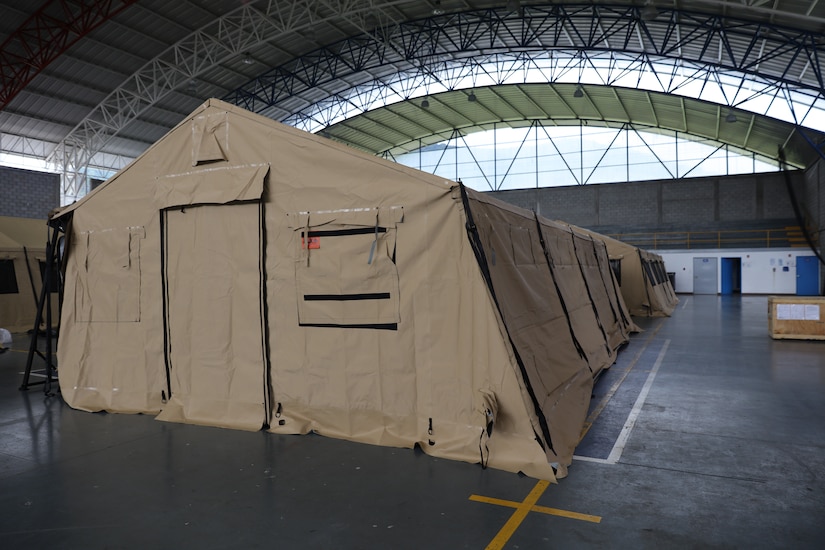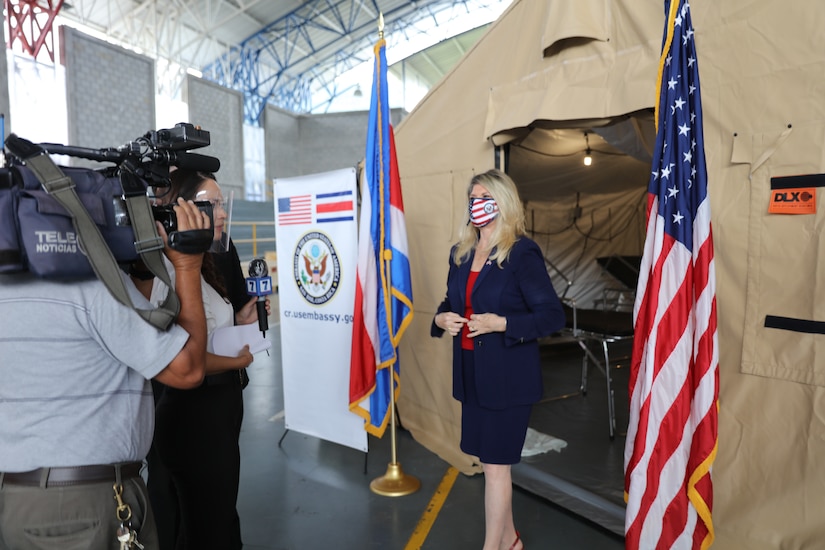Aug. 28, 2020 , U.S. Southern Command
U.S. Ambassador to Costa Rica Sharon Day delivered three field hospitals, donated by U.S. Southern Command, to the Costa Rican government during an official donation ceremony in San Jose, Costa Rica, Aug. 21, 2020.
The donation, made on behalf of the American people, cost $1.1 million and was made possible as part of Southcom's ongoing assistance to nations responding to the COVID-19 pandemic in Central America, South America and the Caribbean and funded through the command's Humanitarian Assistance Program.

The field hospitals will be delivered to the Caja Costarricense del Seguro Social, the Costa Rican government agency that provides public health services nationwide.
A team of civilian trainers will instruct personnel on how to assemble, set up, use, disassemble, transport and stow the portable hospitals.
Earlier this week, the command also delivered the first of two field hospitals it will be providing to the Dominican Republic.
In total, Southcom will supply 24 field hospitals to 11 countries in the coming weeks.
The transportable hospitals will support community health care systems experiencing a high volume of confirmed COVID-19 cases. Although each donation will be based on host-nation needs, most field hospitals will be equipped with generators and air conditioning equipment. They will be delivered ready for the requesting governments to staff, equip and operate. Each field hospital can accommodate up to 40 patient beds.

Southcom's support to COVID-19 response and mitigation efforts began in late March, as the first signs of COVID-19 infections emerged and nations requested assistance from the U.S. government.
The first phase of Southcom's assistance focused on supporting the countries’ immediate response to the pandemic by providing much-needed resources, procured locally, to first responders and health care providers on the front lines. During that initial phase, more than 80 HAP projects donated personal protective equipment, consisting of N-95 masks, gloves, face shields, protective coveralls and disposable aprons. Medical supplies, medical equipment and COVID-19 testing supplies were also donated during the initial phase.
The field hospitals are among the donations funded in the second phase of Southcom's assistance to the region, which is focused on supporting the region’s long-term preparedness and prevention efforts.
To date, the command has funded more than 290 HAP projects, purchasing more than $16 million in supplies, equipment and other vital resources to support the COVID-19 response and mitigation efforts of 28 nations. In total, the U.S. government has provided more than $135 million in COVID-19 response assistance to the region.

HAP helps partner nations build their disaster readiness, response and mitigation capabilities. The program funds infrastructure, equipment and training to help nations prepare before disasters and crises strike, but also supports countries who request assistance from the U.S. government when they experience health and weather-related emergencies.
COVID-19 assistance projects are funded under HAP to support requests from partner nations for supplies and equipment needed to respond to the virus outbreak, treat infected patients and prevent additional exposures. The State Department and U.S. Agency for International Development review the projects and concur with their proposed assistance before they are approved. All COVID-19 assistance items donated under the program were purchased from host-nation or regional suppliers with no impact on the Defense Department’s force health protection supply chain.
The countries currently assisted by HAP are Antigua and Barbuda, Argentina, Barbados, Bolivia, Brazil, Chile, Colombia, Costa Rica, Curacao, Dominica, the Dominican Republic, Ecuador, El Salvador, Grenada, Guatemala, Guyana, Haiti, Honduras, Jamaica, Panama, Paraguay, Peru, St. Kitts and Nevis, St. Lucia, St. Vincent and the Grenadines, Suriname, Trinidad and Tobago and Uruguay.








No comments:
Post a Comment